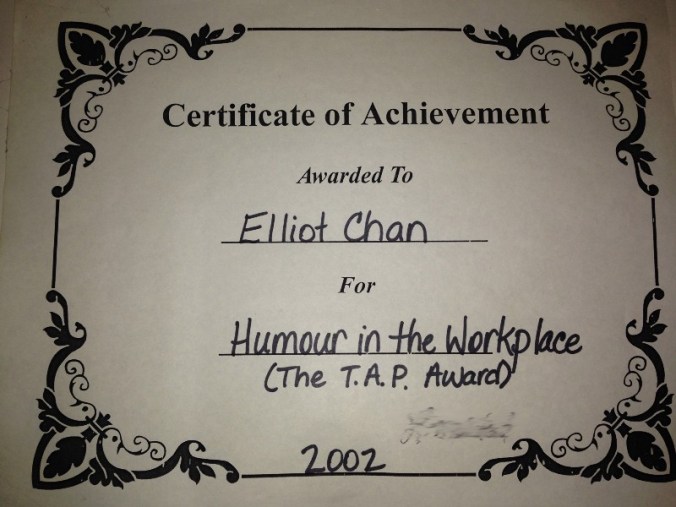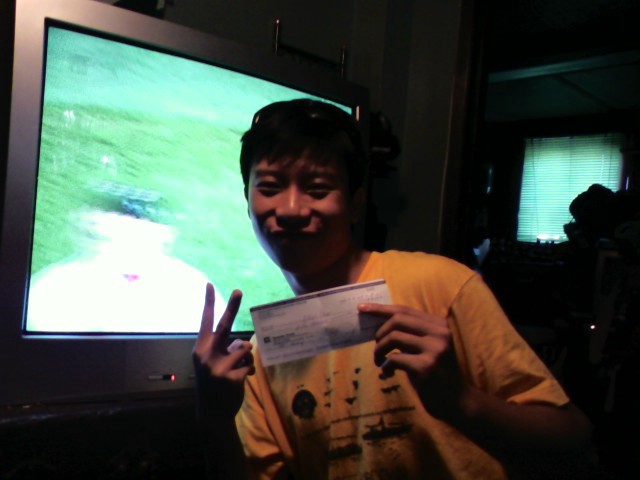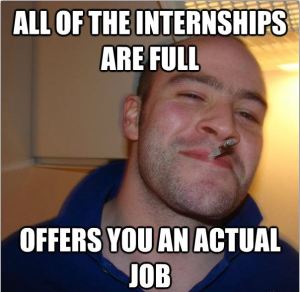
Published November 22, 2015 on Medium.
Public speaking. What an irrational fear. Yet, we are all in one way or another are terrified of it. Some harness that fear and turn it into a skill set. Others retreat into the crevasses of society, taking on jobs and lifestyles that do not demand any formal public speaking. In a digital world, we as humans no longer rely on our voices; we rely on posts and tweets, images, and upvotes. We share our opinions not on soapboxes but in textboxes. We no longer stand up on stage and watch the audience.
I wanted to be an entertainer ever since I was in elementary school, and for many years, I considered it less of a yearning and more of a destiny. The class was my audience and my teachers were my toughest critics. I got as many laughs as I did detentions and it was becoming clear that I had a knack for timing — just not in terms of professionalism.
If you don’t hit the audience with a punch line at the appropriate time, you’ve lost the opportunity, the soul of the joke. A poorly timed joke is just a corny statement. There is no time to wait for a silent break in any conversation. As a thirteen-year-old kid, I knew if I didn’t shout out the funny thought in my head when I thought it was funny, it would be gone, and the world will continue spinning one laugh less.
At the end of my seventh-grade experience, I was awarded the T.A.P. award. Never heard of it? Well, that is because it’s a bullshit award my teacher made in an effort to find something genuine to offer me in life. T.A.P. stood for “Time and Place” as in “There is a time and place for everything, and right now you should be quiet, Elliot.”
I accepted the award with pride, because it was something I earned. I remember looking around the class and seeing other students receive worthless, thoughtless certificates with horrendous compliments written by the teacher. Notable awards I’m making up but might as well have been given: “Most Lovely Shoes,” “The Best Teammate,” and “Genuine Friend.” Ugh! I wanted to vomit. I’ll keep my T.A.P. award, thanks.

Perhaps it was kismet that I got into comedy: first as a fan, then as a hobbyist, and finally as a professional (the term “professional” is used loosely). But the thing about comedy is that it is not something that happens alone; performing comedy is a social act. You cannot tell jokes to yourself.
I really enjoyed making people laugh, but it came with a cost. The label. I sacrificed numerous things to be the funny guy, and one of them is credibility. After a while, people just assumed I was being sarcastic. In strenuous situations like a group project, my ideas would be shunned or taken as an unprompted attempt at humour. Later, once I started taking comedy seriously and told people about it, the intensity of other people’s preconceptions rose. “Tell me something funny!” is a line a comedian will hear often at social gatherings. Because 95% of people in the world think they themselves are funny, they’ll usually require proof that you are in fact what you claim to be. They are the best judges of humour after all. It’s the same way we all look at an attractive person and collectively go, “Yep! That person is attractive. Approved. Carry on.”
If it takes 10,000 hours to become proficient in anything, then I was 1.8% of the way to mastering comedy. An average of five minutes of stage time a week for one and a half years was hardly tenure. I was a Starbucks barista as long as I was a stand-up comedian, and Starbucks is very similar to comedy; after all, you acknowledge your audience and you behave accordingly. No need to think of entertaining, just be yourself. And like amateur stand-up comedy, the customers are not really there for your sake; they just want a drink, and you just so happen to be there.
When I told my friends and family that I have stopped doing stand up, many uttered grievances, sometimes in disappointment that they didn’t get to see me perform — in which they would tempt me to tell a joke — and others times with apprehension. “Oh… why did you stop? (Were you that bad?)”
My mother, who had once found my aspiration insufferable, had now become my number one fan. Passing up an opportunity to be a lawyer was one thing, but giving up on comedy now when so many doors were now closed, left a grave uncertainty in her life. After all, who would take care of her when she’s old if my stupid son is unemployed and not funny? Not Dane Cook that’s for sure. There wasn’t a final show where I bowed out. I just stopped asking for stage time. I told those booking shows that I was taking a break, trying to regroup.
I wonder what I would be if I didn’t stop. Would I be booking my own shows, headlining after performing at local bars and clubs for seven years, or would I just be another comedian like so many other comedians, spending my day in the back of the bar, waiting for my five minutes — still working at Starbucks during the day. I look back and I can’t image my success, which as someone who thought that entertainment was his destiny was a little heartbreaking. I was a carpenter in a world without lumber. I couldn’t help but ask: What happened to me?

There was a moment on stage, I remember; I had my audio recorder on a stool with a notebook full of notes, usually one random word followed by another, tracking the order of my set. I remember looking down at the list and reading the next word on it “Living room.”
I loved wordplay and comedy allowed me to explore it in the weirdest ways. “Living room” was one of those words that had so many meanings, but is so dramatic in a literal sense. It’s like how a scarecrow is actually there to scarecrows. The punch line of the joke comes after a ramble about how ridiculous the notion of a living room is, because “every room you’ve ever been in is a living room.” Bam! Comedy in my books. However, when I told that joke that day a part of my inside was dying. I guess I wasn’t in a living room anymore. Har har!
I stopped performing standup because I didn’t have any conviction to what I was saying. I stopped performing stand-up because what I was saying was irrelevant. I stopped doing standup because I didn’t want to waste people’s precious time with mindless wordplay and frictionless jokes. I wasn’t a good comedian because I wasn’t tackling any important issues. I was twenty years old and I had nothing to fight for except my own pride. Pride came in the form of laughter and applause. That is not what a comedian should do, that is not what any public speaker should do.
Public speaking, including comedy, is an act of influence. When an entertainer steps on stage they should bring more than their good looks and charms, they need to have something worth saying, something they are passionate about, something worth sharing. Jokes are delicious. Jokes are tasty. But jokes are cheap. It’s not hard to get a good laugh, but to be able to connect the laughter with something tangible, something genuine, well that is priceless.
I stopped doing standup because I didn’t have a reason to talk. It was elementary school all over again, but now I understood what my teacher was talking about. Time and Place.
Nevertheless, the time has changed and the place where I choose to communicate is not on stage in front of an audience, but instead in the written world, where I can pretend to have some proficiency in articulation.
There is little fear when we communicate online, the same way I had little fear when I spoke up in class. The consequence is light and so we continue to speak into the void. Sometimes people get annoyed, i.e. my teachers. Other times it’s so ephemeral that it goes unnoticed, i.e. my ramblings at the bar. Nevertheless, when we have something to say, we should make sure we are doing it at the right time and place. We should watch our audience and make certain that what we have to offer is more than reminding everyone that they are currently sitting in a living room. Although it’s hard to argue that it is an important reminder, sometimes.


